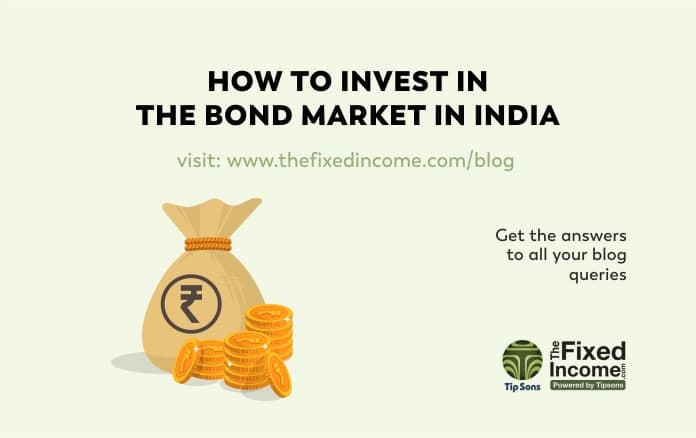You lend money to a government as a creditor in exchange for an agreed rate of interest on the amount at regular intervals in the bond market in India. Purchasing bonds isn’t as difficult as it may appear. However, before you buy a bond, you must first learn about the various varieties and what to look for.
When Buying Bonds, Keep These Things in Mind
Not all bond investments are made equal. The answer is crucial because if a corporation can’t pay its bonds — its commitment to repay the money lent with interest — there’s no incentive for the average investor to consider buying them. With detective work and investigation, one can comprehend whether the corporation will be able to fulfill its debt obligations.
Bonds are rated by rating agencies, with Moody’s, Standard & Poor’s, and Fitch dominating the market. They analyze the creditworthiness of companies and governments, as well as the bonds they issue, by assigning credit ratings.
Where do you start when buying bonds?
As the initial investment amount required in the bond market in India. Most bonds have an Rs.1,000 face value, however there is an exception. You possess a few opportunities when it gets to buying them:
Broker:
Bonds can be purchased using an internet broker. You’ll be acquiring from different investors who are glimpsing to sell their ownership. By obtaining a bond promptly from the underwriting investment bank in an initial bond offering, you may stand competent to get a value off the bond’s face value.
An exchange-traded fund (ETF):
ETFs buy bonds from a variety of companies, and some focus on short, medium, or long-term bonds, or provide exposure to specific industries or areas. Individual investors should think about investing in a fund since it allows them to diversify quickly without having to make huge purchases.
When is the best time to buy bonds?
The bond market in India is where bonds trade after their interest rate is determined and made available to investors. The bond’s price is then determined by current interest rate changes.
Bond prices tend to move in the opposite direction as the economy. When the economy improves, interest rates rise, lowering bond values. Bond prices are rising as interest rates decrease and the economy cools. Bonds may appear to be a good buy during boom times (when prices are at their lowest) and a bad buy as the economy recovers.
Many bond investors “ladder” their bond exposure to managing this uncertainty. Investors purchase several bonds that mature over several years. As bonds mature and the principal is reinvested, the ladder expands. Laddering efficiently diversifies interest-rate danger, but at the cost of fewer earnings.
Bonds issued by corporations.
Aside from ratings, the simplest approach to establish the safety of a company-issued bond is to look at how much interest it pays about its revenue. If the company doesn’t have the income to make its payments, it will eventually run into difficulties, just like a homeowner paying off a mortgage every month.
Bonds issued by municipalities.
Municipal bonds, while historically safe, do not offer the same level of protection as corporate bonds. The Electronic Municipal Market Access (EMMA) website has more information about these bonds, including the official prospectus, the issuer’s audited financial records, and continuing financial disclosures such as payment delinquencies and defaults. A government’s credit rating is a solid first indication of its creditworthiness, and you may dig further to see whether there have been any recent defaults or other financial issues that could lead to a future default or delinquency.
Bonds issued by the government. Government-issued bonds are supplementary difficult to classify because governments barely have enormous surplus incomes that indicate stability. What’s the good news? Bonds issued by the government in the bond market in India are generally considered to be safer investments. Because the government’s interest rate is so safe, investors refer to it as the “risk-free rate.”
Final words
Investors try to forecast whether interest rates will rise or fall in the bond market in India. Nonetheless, continuing to purchase bonds can be construed as a venture to term the market, which is not suggested.






















